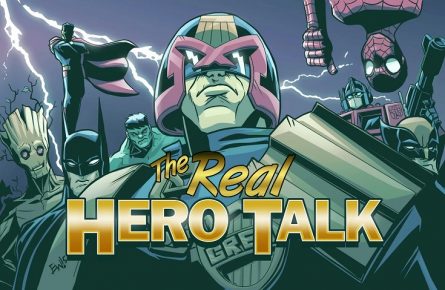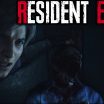Orphan of the Windy Mountains

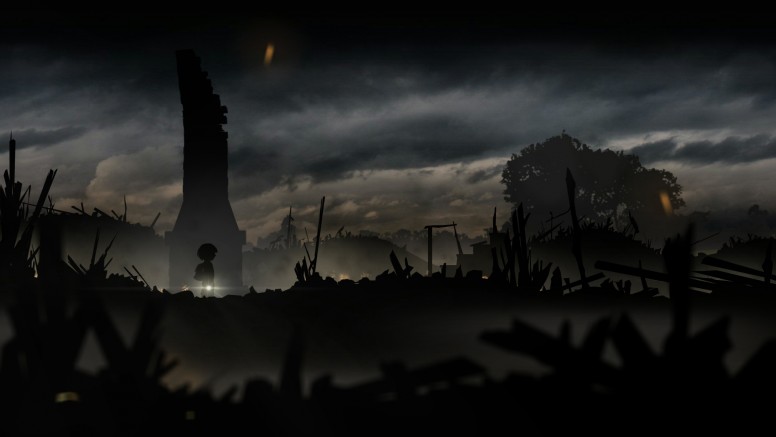
An Interview with Orphan creator Brandon Goins
“Yet across the gulf of space, minds that are to our minds as ours are to those of the beasts that perish, intellects vast and cool and unsympathetic, regarded this earth with envious eyes, and slowly and surely drew their plans against us.” ~ H.G. Wells, War of the Worlds
For centuries man has attempted to answer one of the greatest questions of our existence; are we alone in the universe? And if we are not, what would be the outcome if the two peoples were to ever meet? Enlightenment, or annihilation? We’ve pictured these other-worldly beings in a menagerie of forms; horrible and beastly. Beautiful and wise. Friendly… and malevolent. It has fed our imagination for centuries. Even today, we still attempt to guess, or even exploit, the moment that this event may one day have on our species. Countless books, movies, and even television series have lived (and sometimes died) by this fiction.
Even video games have attempted to answer that question. From Mass Effect to Half-Life; from Quake and even X-Com, this science-fiction has become a part of our everyday lives. And though it has touched our past, one entrepreneurial soul hopes that it will define his future. I had a chance to sit down with one Brandon Goins, sole proprietor (for now at least), of Windy Hill Studios, as he makes that final, valiant push towards making his dream a reality. Currently, Brandon is attempting to seek financial support for his game Orphan on Kickstarter. A game set on the night that an alien invasion occurs, and separates a young boy from his parents.
Though the use of stealth, ingenuity, and collected alien devices and tools, Orphan will tell this child’s story as he seeks desperately to find his way back to his family, while contending against forces greater than he could ever possibly imagine.
Enjoy:
Marcus: So tell us a little bit about yourself. What drew you to the indie gaming scene?
Brandon Goins: Like a lot of people in this, I grew up playing games since a young age and was always really into the art and music side of games. This in turn led me to get into art and music from a young age and I had wanted for a long time to somehow put that creativity back into gaming but didn’t know how. I had been wanting to do a game soundtrack for a while and was actually working on one for a game project that fell through a few years back. Finally someone in a weekly music compo that I participate in told me to try out GM: Studio and when I realized how easy it was to actually make my own game I never turned back.
M: Now, are you head of a team or has it been just you working on Orphan for the last year or so?
Brandon: Windy Hill is only me for now as I have no money and would prefer to do most of Orphan myself. But before Orphan is out, there is no doubt there will be a few more names in the credits [besides] mine. I’ve been approached by very talented programmers, artists, musicians, sound effects people, publishers, etc and I’d like to involve some other people at what point it feels right. But right now Orphan is less than 10% complete and I’m taking it slow until I figure out every angle.
M: Tell us a little about Orphan; from what I’ve read it’s about a boy attempting to survive against an alien invasion as it’s occurring, correct?
Brandon: Exactly, story-wise Orphan will take place in one night during which time aliens are invading and your parents are presumed missing or dead. It will play a little like Oddworld or Another World, which are both slow moving platformers with weak protagonists and strong enemies.
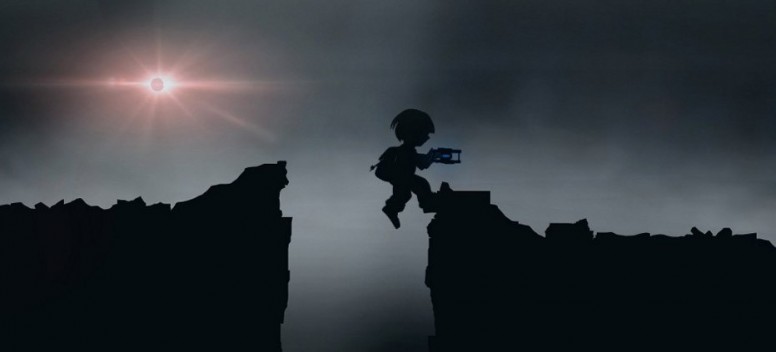
M: No doubt you’ve already heard, and you even addressed, Orphan’s aesthetics being heavily compared to Playdead’s Limbo. In fact you consider the comparison a complement. But, ultimately what would you say differentiates the two titles the most?
Brandon: I’ve had so much thought on this subject that I could probably put together a 100-slide powerpoint on the differences between the games. In fact the only similarity is that the games rely on silhouettes and they both do revolve around a young protagonist. But where Limbo is a short linear puzzler with ambiguous environments Orphan is more a metroidvania adventure game with lots to explore and a variety of weapons and enemies to encounter.
M: You also have a nifty little collection metric going on here; did you ever worry that by adding that in it might throw off the game’s difficulty in any way?
Brandon: I do worry about balancing the difficulty and I won’t know if I got that right until we’re beta testing a year from now. I come from the era when every single game was crazy difficult and so I don’t even know how much difficulty in a game is acceptable now. I do want it to be difficult, but I realize the point is to be fun. I only want the player to die as many times as is still fun. I like the concept that if a player is having trouble with a particular enemy he can go back and dig up some useful gear and try again. I know what I want but how well I pull it off remains to be seen I suppose.
M: What’s been the most daunting task so far when it came to initially bringing Orphan to digital life?
Brandon: Time. Everything takes so much time. I don’t think people realize how long it can take to make even the smallest things in games. When you work full-time you don’t have time to develop and so that’s what’s held me back so far. This is why I put Orphan on Kickstarter. But that has proved to be an extreme challenge. A few years ago it seems you could literally put potato salad on Kickstarter and get supported and today you need to actually have something that gets the attention of lots of people and the press. That’s not as easy as I had hoped but it’s getting there.
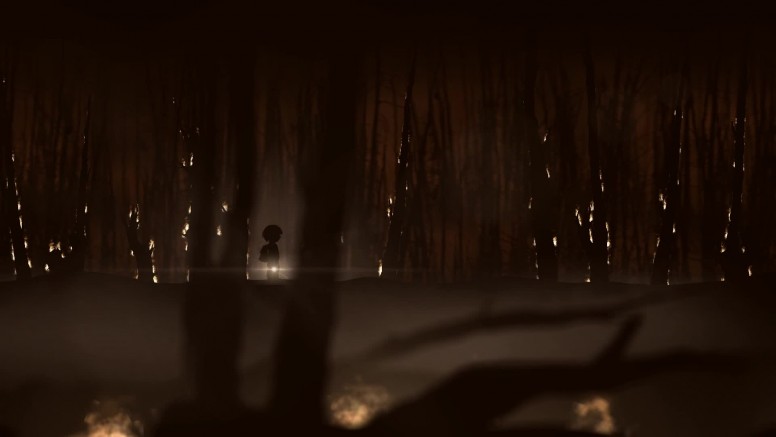
M: You also state that Orphan will offer players “multiple paths full of secrets to discover.” Will these secrets require players to utilize specific items to find or are they more like “off the beaten path” spots for players to discover?
Brandon: Some of both. Being that the game is going for some degree of realism I can’t do simple things that allow boots that make you jump higher to reach a new area or the ability to blow a flute and uncover a secret path, but I can certainly allow the player to blow the door off a building with a stick of dynamite found in an old barn. But I do have some off the wall ideas too about some of the alien technology that might appear in the game and allow some creative exploration.
M: If you could distill the many elements of Orphan into three core principles or themes, what do you hope players take away from the game? What “sense of” do you want to instill in other words?
Brandon: This might sound odd but I really want Orphan to scare the crap out of some little kids. I grew up playing games and I still see gaming as a medium with kids at the center and so I’m making Orphan with kids in mind. I want to create a world that feels real and an atmosphere that feels lonely and tense. I want the gameplay to expand in a way so that every hour is more exciting than the last and so by the end you feel you had a journey rather than just an experience.
M: You make mention of “lucid dream” sequences spread across the game; are they interactive in their execution or more like cinematic vignettes to help flesh out the story?
Brandon: Yes, every part of Orphan will be interactive. Modern games have turned me away from lots of cut-scenes or scripted events. I want every part of Orphan to feel real and for the player to always be a part of the story.
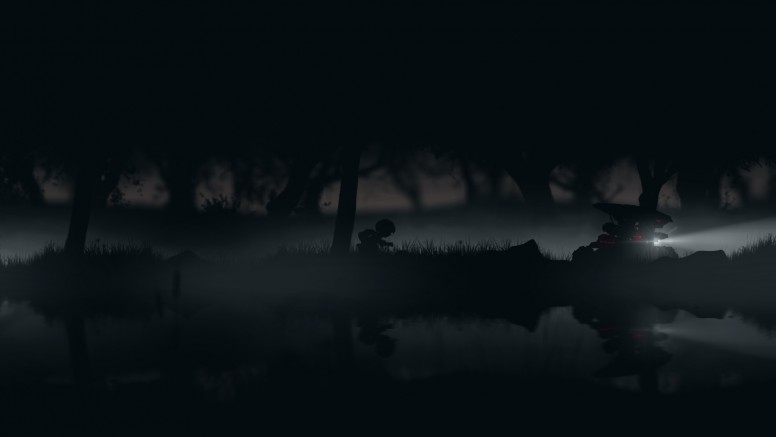
M: You’re no doubt aware of the whole #GamerGate controversy currently still raging across the internet. As an indie developer, where do you stand or what’s your opinion on the matter?
Brandon: I’m mixed on many of the separate issues. First of all, gamergate as well as anti-gamergate has become nothing but some twitter ritual where you take a screenshot of something someone on the other side said and then all your followers agree with how dumb that person is. I’m not interested in that. It’s embarrassing. Yes it’s a big world out there full of lots of very different people and opinions. In a world where people are burning other people alive in cages I don’t know how I’m supposed to be impressed that this one time someone said something rude to you on twitter. In a world where we have so many real victims of really, really bad things I don’t understand how professional victim-hood is a profitable thing. I can understand the narcissism I just can’t understand the very misplaced pity.
On journalism, as a former journalist I honestly believe most gamergater supporters have no idea what the word journalism means and are beating up on people who deserve better. I don’t believe journalists talking to other journalists on an email list is conspiracy. Actually it’s what they SHOULD be doing. Out of spite I’ve followed a few journalists who I believe were getting a raw deal. But then, to my surprise, I often find those people revel in the attention they get. I’m sorry but you don’t deserve the mantle of journalist if you sit and childishly bicker with and make fun of the people in the industry you are supposed to be covering.
In the end I only support developers rights to make games as they want them, gamers rights to play the games they want to play and journalists to write about how games however they see fit. I oppose anyone who tries to tell artists how to make their art, and I oppose anyone who believes they can say that every person on the other side of an issue is a bad person.
M: Has taking, or not taking a stance I guess, been detrimental in any way? Have you experienced any sort of condemnation from one side or the other?
Brandon: I guess I’ve taken a soft “support” stance and it’s been both good and bad. Members have been very good to me for the most part and very supportive. But my pro-journalism has caused me a few hour-long twitter debates with members as well. But somehow I got added to a list of developers who support gamergate and before I knew it I had someone posting a graphic calling for my boycott simply for that reason. Again, I would be impressed at the vitriol if there wasn’t so much of it in the world already.

M: So what does the future hold for you once Orphan is complete? Where do we see you in, say, three years, give or take?
Brandon: I want to make games forever. I have tons of ideas for games and that’s all I really want out of this. Just from a designer/programmer standpoint there are so many things that would be fun to make so I hope this is only the beginning.
M: Best estimate, when can players expect to get their hands on Orphan?
Brandon: Roughly the idea is to have something nearly complete for PAX South in January [2016], have the beta version in the hands of Kickstarter backers in February [2016] and release it as soon as it’s stable.
I want to thank Mr. Goins for his time, and for those of you interested in helping out, Orphan is making it’s final push on Kickstarter, which you can find HERE. Currently, Orphan is being developed for PC, Mac, Linux and Steam, with the possibility of expanding to the PlayStation 4 should it reach its stretch goal of $36,000. Orphan’s homepage, complete with trailer and more recent news, may be found HERE.



